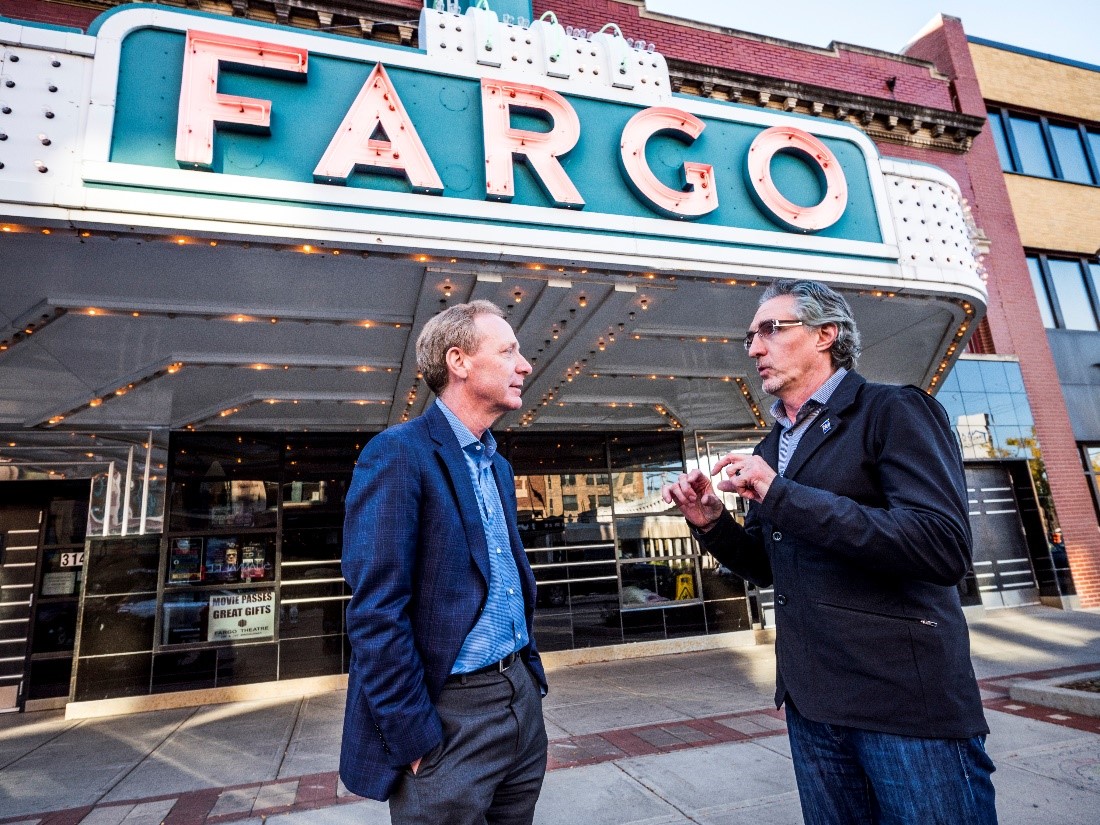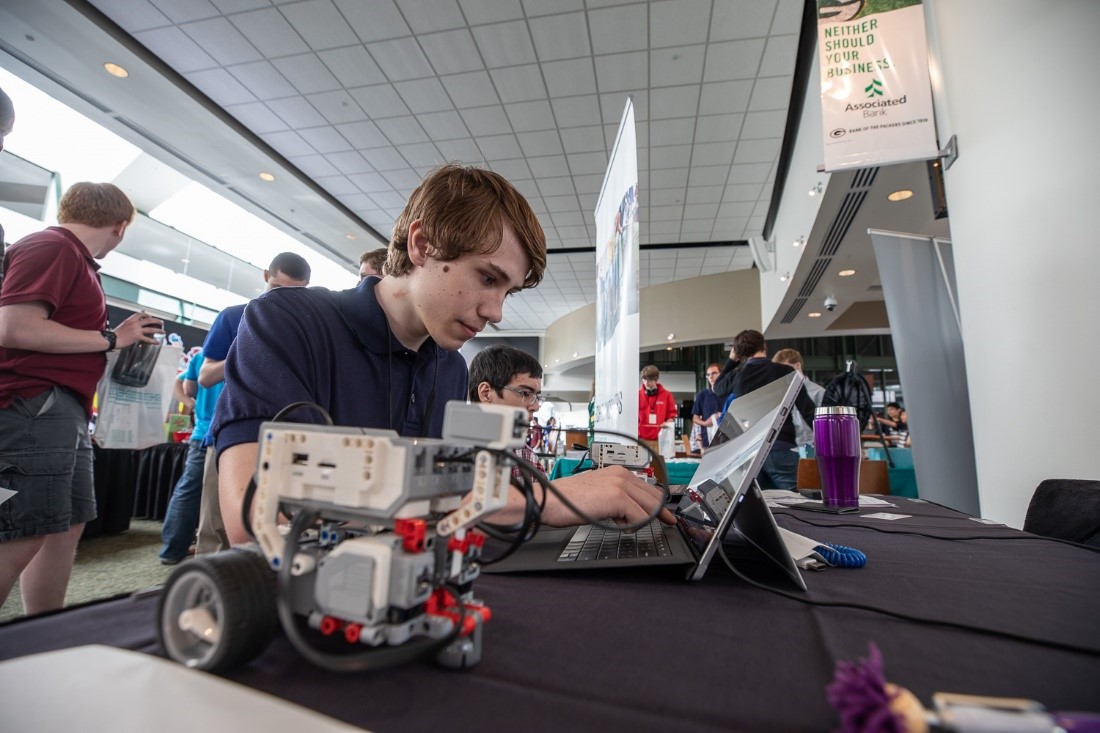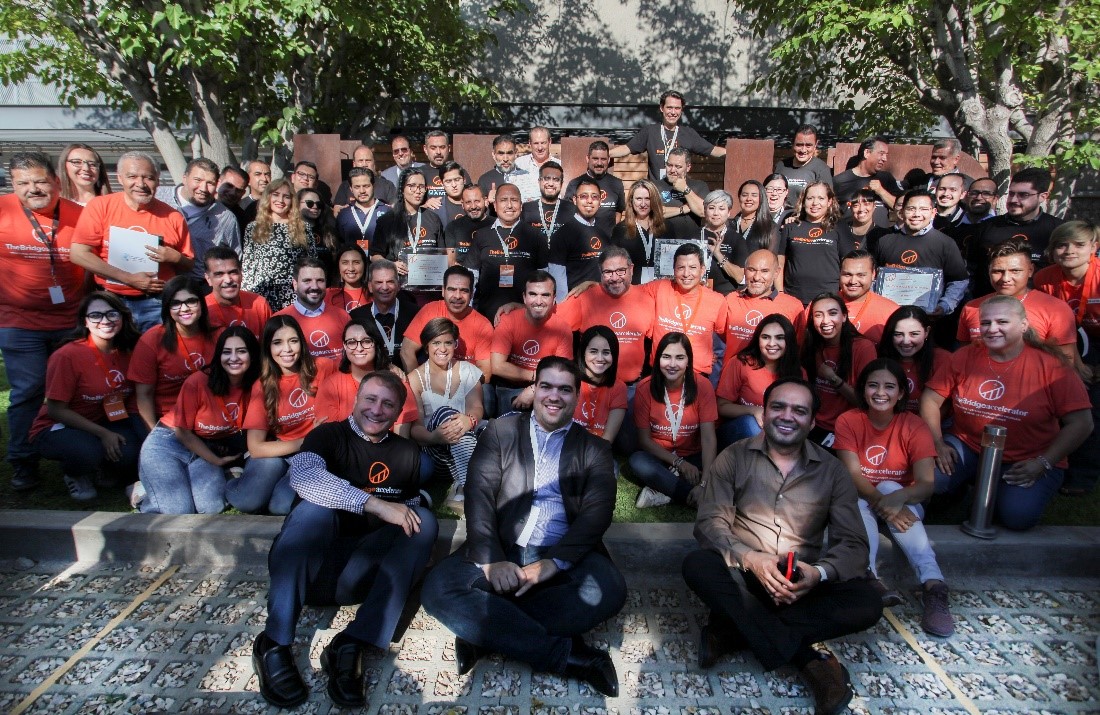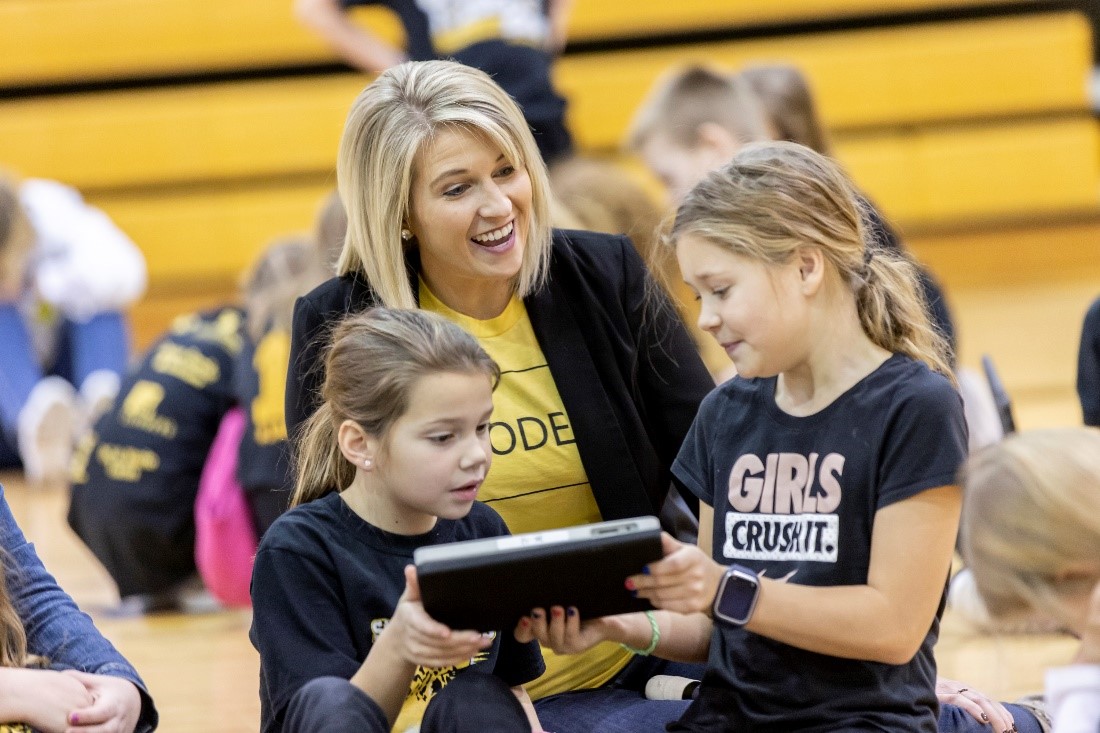For an audio recording of the blog, listen below.
Three years ago, Microsoft President Brad Smith joined North Dakota Governor Doug Burgum in downtown Fargo to launch a new project called Microsoft TechSpark. This civic initiative was formed to foster economic impact and job creation through deep partnerships and collaboration. Corporate engagements with communities are nothing new, but the pivot here was to dive deep in just six specific regions, and focus on rural and remote communities, a change from often traditional outreach in larger, more urban metropolitans.
If we could find communities that embraced collaboration and would help test new resources and technologies, we knew we would learn a great deal. To gain a greater understanding of these differing ecosystems, we selected six regions with varying backgrounds, sizes, and demographics. We chose Cheyenne, Wyoming, Southern Virginia and central Washington State as they housed Microsoft data centers, while Fargo was a natural fit with an already large Microsoft employee campus. We wanted to engage a few regions, too, where we had little to no Microsoft presence. Given their strong engagement in our computer science education efforts, we also launched TechSpark in northeast Wisconsin, and then moved south to El Paso, Texas, before quickly adding in bordering Juarez, Mexico, to explore bi-national projects.

One essential ingredient in this plan was to find and hire TechSpark managers who lived in and knew the community. Some might have thought it would have been easier to send a team from company headquarters or rotated in visiting experts, but that’s not what we were going for. We’ve found that a member of the community who has resided in, worked alongside these neighbors, and previously led some of the region’s organizations, accelerates the work instantly with established credibility, presence, trust, network and awareness. This 24/7 approach to community engagement ensures constant communication, and many TechSpark ideas and approaches began with a conversation in the grocery store line or local coffee shop.
The team was charged with driving community and economic development through partnership, and delivery of Microsoft resources, keying in on a few pillars, including:
- Collaboration with local nonprofits, and empowering these community organizations to do more through tech enablement and digital transformation
- Driving opportunities in these regions for reskilling, or skilling that leads directly to employability in the community
- Connecting these local regions to high-speed internet and working with Microsoft’s Airband Initiative toward the goal of bringing broadband access to 3 million Americans living in unserved rural areas of the United States
- Empowering local partners to help build a more signature regional project, larger in scale and scope, and created for sustainability and longer-term impact

These signature projects have underscored our mission of growing each region’s plan organically and collaboratively. Several local leaders have shared the phrase, “Meet the community where they are.” Three years in, we’re proud to see these signature projects in planning and/or execution in all six of our TechSpark regions:
- Green Bay, Wisconsin celebrated the one-year anniversary of TitletownTech this summer. This partnership between Microsoft and the Green Bay Packers, has created an exciting venture lab and studio, across the street from iconic Lambeau Stadium, and is now shepherding more than 20 new startups into formation, with many beginning operations in Northeast Wisconsin.
- In North Dakota, a partnership with the innovative organization Emerging Prairie, has started the Grand Farm. This farm of the future will bring together students, teachers and industry to explore precision agriculture on a 60-acre experimental farm and test bed, alongside a digital academy and plug and play agriculture accelerator.
- Near our Boydton, Virginia, data center, and together with the MidAtlantic Broadband Corporation, the new Southern Virginia Innovation HUB will open its doors early next year (2021). The first new in the region for decades will house area nonprofits working to drive skilling, tech training and community partnerships.
- This fall, companies from both Mexico and the U.S. are coming together weekly, for our third cohort in the El Paso-Juarez Bridge Accelerator. This unique bi-national project has tapped the network of the Juarez Technology HUB and local partners to unite manufacturers, startups and other regional companies, sharing resources, best practices and training over a 12-week program. Already, the Bridge Accelerator’s first two cohorts have produced nearly $4 million in new sales, over $500,000 in new VC investment, and 110 new jobs.
- Cheyenne, Wyoming, is bringing together the great work of gener8tor to drive new business and startups in the state, and then leverage those new opportunities with the innovative curriculum of the Array School of Coding and the unique apprenticeship training of the Techtonic software and tech team.
- And in central Washington state, skilling through remote training has become a key mission of rural resilience, in partnership with area leaders like the Greater Wenatchee Tech Alliance, the Columbia Basin Foundation and Washington State University.

The daily connection and communication with these communities has informed our processes, priorities and programs. To summarize a few learnings and key takeaways across all regions:
- Partners before projects: The partner is key to any engagement. And finding the right partner first, and then building the plan and project second, is instrumental to every regional engagement. One can’t quickly recreate the relationships, know-how, infrastructure, network and knowledge that an established local partner brings. These organizations are already doing great work, and in some cases, are simply in need of additional resourcing, connections and a bright north star to dream bigger and accelerate their mission. Collectively, TechSpark has now partnered with 314 nonprofits across these regions, supporting more than 303,000 individuals.
- Back to school: We have found a strong common denominator in every rural or remote region with the local university, community or technical college. These higher education institutions often serve as the barometer for future employment and local workforce trends. Strong collaboration with these schools has produced new curriculum, planning and training opportunities like mentoring, apprenticeship and distance learning. From larger schools like the University of Texas at El Paso, North Dakota State University, the University of Wyoming and the University of Wisconsin at Green Bay to great local community colleges like Washington’s Big Bend, Southside Virginia and Wyoming’s Laramie, we’re finding engaged faculties and innovative administrations willing to collaborate to educate the next workforce. Together, these TechSpark partnerships have impacted 52,000 college students. Additionally, the team has worked to help bring the TEALS computer science teaching program into 135 high schools in the TechSpark regions, training over 150 high school teachers and 7,500 students.
- Connect: Access to high-speed internet is the electricity of this era, and in communities without strong internet, the struggle for business, education and health-care connections is exacerbated. Understanding the challenge with real numbers to identify demand, and incentivizing providers to move in, is a constant quest. From students doing homework in cars near new Wi-Fi hotspots, to agricultural projects growing through FarmBeats and data collection, the connection remains a foundational priority for economic and community growth. The work of Microsoft’s Airband team is helping to drive these projects across the globe, and finding partnership in states from Wyoming to Wisconsin, Texas to North Dakota.
- No cookie cutter: The varying backgrounds of these diverse regions has demanded regional approaches and individual attention. As we began to work to land AI for Good grants in each community, we quickly learned that a small nonprofit organization with a staff of one or two may not have the bandwidth to quickly absorb and implement an AI project. A flexible toolkit, with resources to help enable technology, is essential and must be inventoried uniquely by each region. With the necessary support, TechSpark has delivered 14 AI for Good grants across these regions. As well, the continuing work with local partners, has delivered skills training and a path to employability, for over 54,000 individuals in these TechSpark communities.
- Multiply: As the TechSpark program moves into year four, the ability to sustain these efforts and inspire replication becomes paramount. Our ability to multiply seed funding has become a metric across all these regions with a minimum goal of 3X. If we can help serve as a catalyst for other local and national partners, to help support a regional nonprofit, we’re a step closer to long-term sustainment. This work has already secured an additional $25m in funding from other partners (local and national) in addition to our TechSpark support, a 4X multiplier. Additionally, this effort underscores our hope for TechSpark-like projects to spring up in other communities across the globe. Providing a toolbox of best practices and lessons learned will spur other regions to scale through partnership.
- More alike than different: As much as we focus on differences between rural and urban, we are often struck by the greater array of similarities we all share. Regardless of the region’s population, we’ve witnessed the same hope shared by many; to provide for and educate their family, leave behind a stronger community, and give their children a better future. Likewise, we are hearing from many young people and new graduates, who express an eagerness to return to their roots, find a home near extended family, and continue the community building of their parents. Many may leave for school or adventure, but that instinctual path back to the hometown is strong, if only they can find the workplace opportunity.
The pandemic has caused many to push a reset button, as we have heard daily from local nonprofits and small businesses, struggling for survival. We’ve been able to support over 100,000 individuals in these regions through Covid-19 relief projects and, now more than ever, the work is critical to expand these local recovery and rebuilding efforts.
After three years, it is clear to us that no one organization, public or private, corporate or nonprofit, can transform these challenges alone. It is also clear that the desire to build up these ecosystems, digitally enable local businesses, provide skills for 21st-century jobs and redistribute opportunity is at the forefront for community leaders at all levels. This mission transcends political stripes across the spectrum.
The reception from these communities continues to be both welcoming and beyond appreciative. We look forward to this ongoing learning, community engagement and economic development as the spark started three years ago in Fargo continues to light.
Mike Egan is the Senior Director of TechSpark for Microsoft. Mike began his career picking raspberries in the fields of his hometown Puyallup, Washington, and working at the State Fair.

